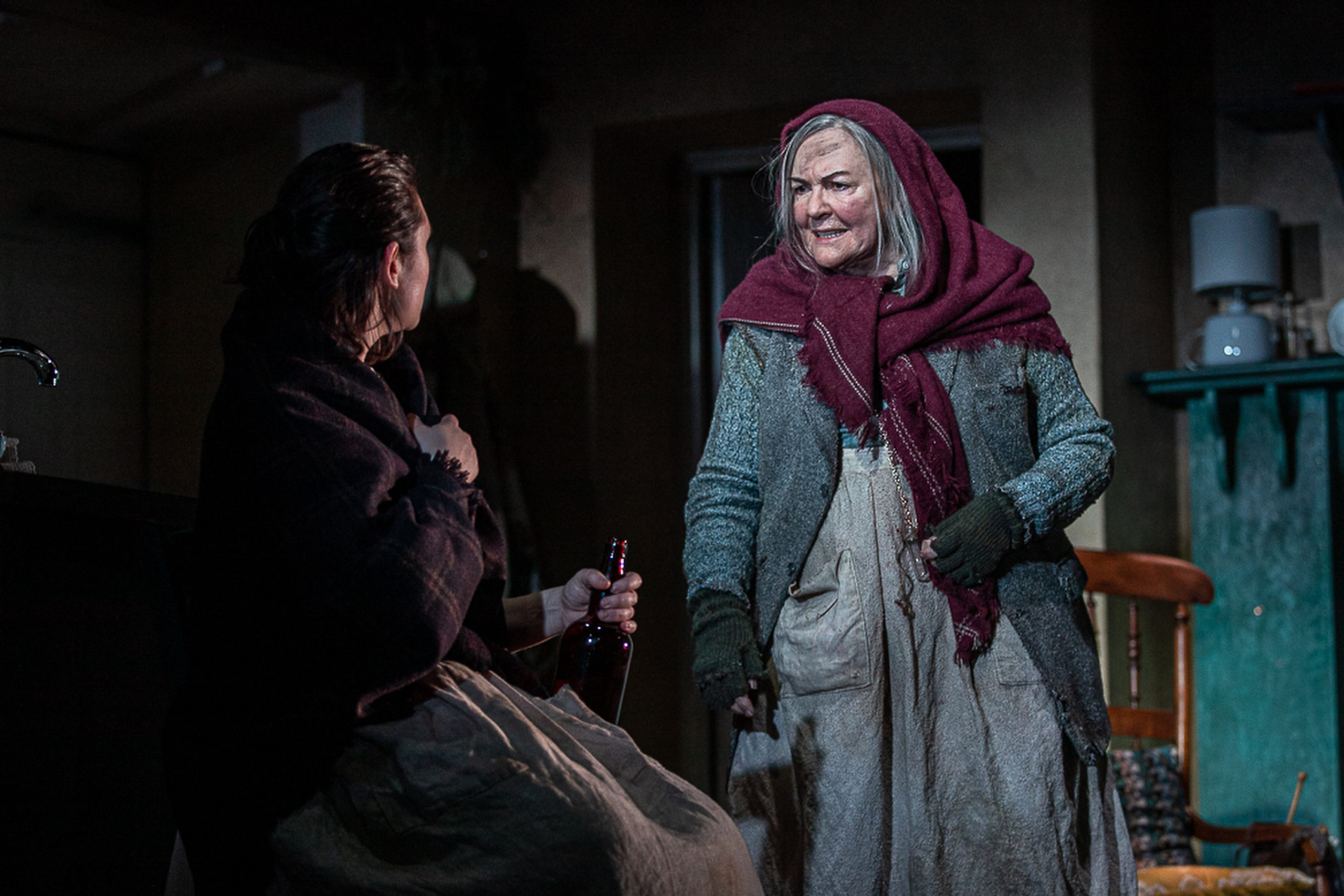
Laura arrives at her father’s croft with her older lover Suzanne, determined to have a romantic break. Isolated from the modern world, the couple’s squabbling soon gives way to dredging up the hidden history of the croft which seems to linger in its foundations.
The Croft is the debut of writer Ali Milles and is an inventive piece that bridges several genres. Billed as a thriller, it is as true to frame the play as a domestic drama, a historical narrative, and at certain points a ghost story. This has the rather pleasing effect that the drama has no natural or obvious resolution dictated by strict genre convention. This freedom is employed well as the drama straddles parental trauma, strained romantic bonds, fear of and obsession with the irrational, and themes of heritage.
The play is split across three stories with Laura’s (Lucy Doyle) return to the croft acting as a framing device for the other two. In time, we come to events a generation prior with Ruth (Caroline Harker) and then the further flung glimpses of Enid (Gwen Taylor), an old and defiant crofter in the 1800s. The structure is pregnant with mysteries and unresolved tension that sustain the audience’s interest, even if some of the more intriguing elements are left relatively neglected. Although Gwen Taylor adorns the poster as the formidable Enid, it is Lucy Doyle’s Laura who has the unifying arc of the play. Doyle gives a strong performance as a standoffish young woman struggling to process a lot of twisted history, hypocritically demanding emotional engagement from others but never summoning any herself.
My note of ambivalence comes from the fact that the structure of The Croft is a bit uneven and a few of its staging choices aren’t wedded to the central concept. Of the three narratives, Laura and Ruth’s have an overt connection whereas Enid’s historical story set during the Highland Clearances is remote and never gets the coverage or weight of the others. Although this adds an air of mystery to these sections, we never get into the meat of that material. There are obvious thematic parallels going on but these are muddied rather than elucidated by the way the haunting aspect is staged.
Throughout the play, the stories cross-pollinate lightly with the implication being that past emotional trauma haunts the croft. The problem is that there is no payoff to this. The suggestion of a climax where these stories intersect and resolve is made, but that resolution never comes. By comparison, if the The Croft had gone with a more thematic approach to the haunting, where the scenes simply echo and contrast with each other in the same space, and where meaning is drawn out by these cycles of events, the piece would be more powerful for it. Conor McPherson’s The Weir does seem to be a reference point for The Croft but what this play overlooks is that McPherson never depicts a literal haunting, nothing flies off the mantelpiece, and the play rests on the implication of strange experiences, which is far more evocative.
The slightly lop-sided nature of the play may introduce a few issues, but there is still a surfeit of emotive material in The Croft. Perhaps it exhibits some signs of creative growing pains, but I would still rather watch an interesting if lumpen play like this than something immaculate but bland. ★★★☆☆ Fenton Coulthurst 23rd January 2020
Photo by Charlotte Graham


